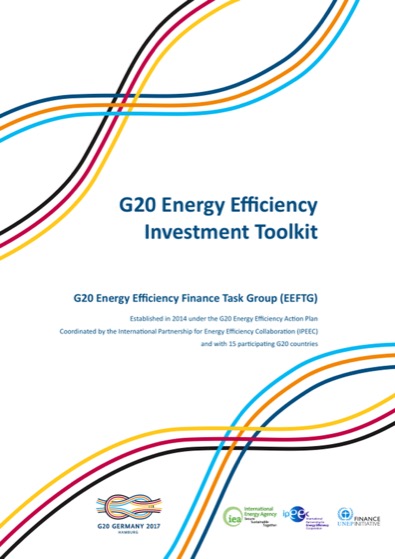Each year, governments, financial institutions, companies and consumers around the world are investing more than USD 221 billion into capital expenditure in buildings, industry and transport, to improve energy efficiency. For G20 countries, who are responsible for over 80% of primary energy consumption and 80% of green house gas emissions globally, energy efficiency and improved energy productivity are critical to the challenge of decarbonising their economies, achieving the goals of the Paris Agreement, and realising the significant economic, environmental and social benefits of energy efficiency in their economies in the most cost-effective way. The G20 is helping to develop this growing market with the G20 Energy Efficiency Investment Toolkit, which provides a voluntary framework for the world’s leading economies to upscale energy efficiency investments.
As no single stakeholder group can address the G20 energy efficiency investment challenge alone, the Toolkit provides a collaborative architecture through which G20 policy makers and innovators from different classes of financial institution can engage in a structured dialogue and jointly develop the new business and financing models which are needed to scale up energy efficiency investments.
Public and private sector financial institutions are increasingly tackling the energy efficiency investment opportunity by sharing their approaches and tools for joint development. The Toolkit collects experience from 15 participating G20 countries, led by France and Mexico, and is produced and drafted by EEFTG with the support and input from multiple stakeholders led by the UN Environment Programme Finance Initiative, the International Partnership for Energy Efficiency Cooperation, and the International Energy Agency.
The G20 Energy Efficiency Investment Toolkit includes:
- An assessment of current energy efficiency investment by sector and region;
- A showcase for good practice exchanges on (i) enabling national policy framework design and (ii) implementing the voluntary Energy Efficiency Investment Principles for G20 participating countries;
- A report on “best in class” instruments and approaches to encourage and increase energy efficiency investments among different types of private sector financial institutions (banks, long-term investors and insurance companies);
- A joint consensus among public banks and development institutions around “best in class” instruments and approaches to scaling-up their energy efficiency activities.
The Toolkit was referenced in the G20 Climate and Energy Action Plan for Growth adopted at the G20 summit 2017 in Hamburg.
Read the Summary for Policy-Makers here.
Read the G20 Energy Efficiency Investment Toolkit here.
Read the Case Studies here.



